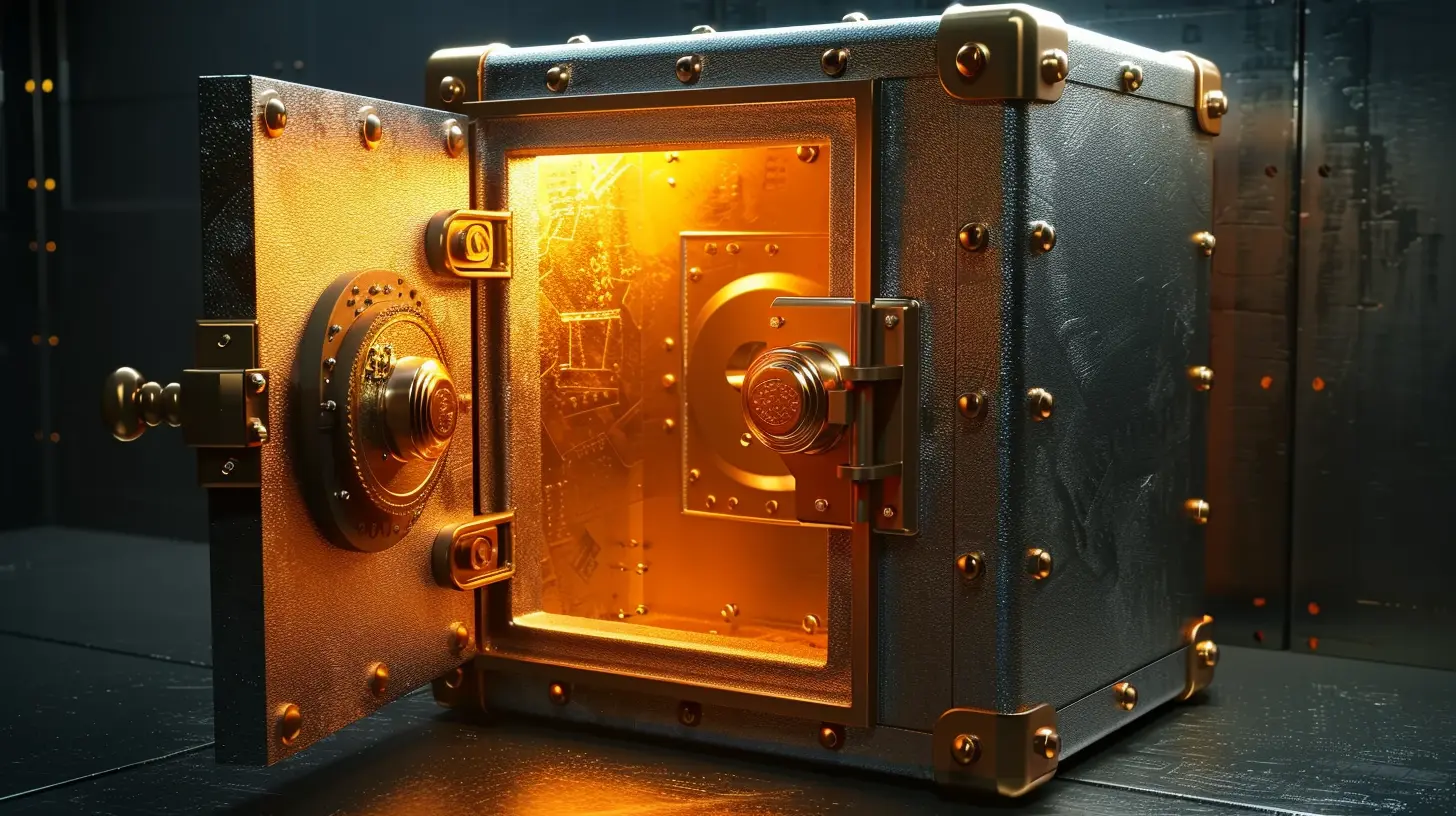Maximize Your Savings: Essential Tips for Choosing the Right Bank
11 July 2025
Let’s face it — choosing a bank isn’t exactly the kind of thing you daydream about. But here’s the truth: your choice of bank can seriously impact your financial future. Whether you're fresh out of college, dreaming about that first home, or gearing up for retirement, the right bank can help you stack up savings instead of chipping away at them.
So how do you make sure you're not throwing money down the drain with low interest rates, hidden fees, and poor customer service? That’s what we’re going to dive into today.
Sit back, grab a cup of coffee, and let’s talk about how you can maximize your savings just by choosing the right financial partner.
Why Your Bank Matters More Than You Think
Think of your bank like a toolbox. If it’s filled with worn-out tools, you won't build anything solid. But with the right ones? You’re basically setting yourself up for long-term financial success.Banks are more than just a place to park your paycheck. They’re where your emergency fund grows, your future home down payment sits, and where you manage your monthly cash flow. Choose the wrong one, and you could be bleeding money with fees, low interest rates, and poor support.
But choose the right one? You’ll be growing your money even while you sleep.
Tip #1: Know Your Financial Goals
Before you even start researching banks, ask yourself: what do I want from my money?Are you…
- Saving for a vacation in the next year?
- Trying to build an emergency fund?
- Looking to stash away money for long-term goals?
Different banks cater to different needs. Some offer high-yield savings accounts that are perfect for long-term saving. Others are built for convenience and daily use.
If you don't know your goal, it's like trying to board a train without knowing where it’s going. You’ve got to figure out your destination before picking the route.
Tip #2: Look Beyond the Big Names
Big banks may have shiny buildings and tons of ATM locations, but that doesn’t always mean they’re the best for your savings. In fact, many of them are notorious for offering rock-bottom interest rates on savings accounts.On the flip side, online banks and credit unions often offer higher interest rates and lower fees. Why? Fewer overhead costs.
It’s kinda like shopping at a local farmer’s market. Smaller setup, but you get more value for your buck.
Don’t Sleep on Online Banks
Online banks usually offer:- Higher interest rates (sometimes 10x higher than traditional banks!)
- Low or no minimum balance requirements
- No monthly maintenance fees
- Sleek mobile apps and easy online access
Sure, you might miss walking into a physical branch — but when you check how much more you’re earning, you won’t miss it one bit.
Tip #3: Compare Interest Rates (Seriously)
This one’s a no-brainer, but way too many people ignore it.Your savings account should help your money grow, not just sit there collecting digital dust. You’ve worked hard for your money — it should return the favor.
When comparing banks, look at the Annual Percentage Yield (APY) on savings accounts and certificates of deposit (CDs). A higher APY means more money in your pocket over time.
Even a difference of 0.50% in interest can mean hundreds or even thousands more over the years. It adds up — fast.
Let your money hustle for you.
Tip #4: Watch Out for Sneaky Fees
Banks love their fees — overdraft fees, ATM fees, monthly maintenance fees, the list goes on.And while $12 a month might not seem like much, over a year that's $144 — money that could’ve gone straight into your savings.
Look for banks that offer:
- No monthly maintenance charges
- Free ATM access nationwide
- No minimum balance fees
- Overdraft protection options
Pro tip: Always read the fine print. Banks often advertise “free checking” or “no fees,” but there are sometimes caveats — like requiring direct deposit or a minimum daily balance.
Don’t get caught in the fee trap.
Tip #5: Evaluate Customer Service and Support
Here’s a scenario: You’re traveling abroad. Suddenly, your card gets flagged and frozen. If your bank doesn’t have solid customer support, good luck getting that resolved quickly.You want a bank that:
- Has 24/7 customer support
- Offers live chat and phone support
- Provides user-friendly mobile and online platforms
Money problems are stressful enough — dealing with poor customer service just adds salt to the wound.
And don’t underestimate user reviews. A quick peek at Trustpilot or Reddit can reveal a lot about how a bank treats its customers.
Tip #6: Think About Accessibility and Convenience
You want a bank that fits into your lifestyle.Are you someone who always pays with a debit card? Do you need to deposit checks regularly? Is it a dealbreaker if your bank doesn’t have an ATM on every corner?
Here are some questions to ask:
- Does the bank have a solid mobile app?
- Can I deposit checks or transfer money easily?
- Are there nearby ATMs or fee-free access?
- Does it offer automatic saving features or budgeting tools?
If you need to jump through hoops just to transfer money or check your balance, it’s time to switch.
Your bank should work for you, not the other way around.
Tip #7: Don't Ignore Perks and Bonuses
Banks are just like any other business – they want your business. That’s why many of them offer sign-up bonuses, referral rewards, cashback debit cards, and more.While you shouldn’t choose a bank solely based on a sign-up bonus, it can be a cherry on top.
Some banks will offer $100 to $300 just for opening an account and setting up direct deposit. That’s basically free money.
But — and this is important — always read the terms. Sometimes those bonuses come with strings attached.
Tip #8: Consider Security Features
Let’s talk peace of mind.With scams, phishing, and identity theft on the rise, your bank should take your security seriously.
Here's what to look for:
- Two-factor authentication
- Biometric login (like fingerprint or facial recognition)
- Real-time fraud alerts
- Zero liability fraud protection
- FDIC or NCUA insurance on deposits
If someone hacks your account, you want to know your money is safe and that your bank has your back.
Tip #9: Think Long-Term
Today you might just need a simple savings account. But down the road? You might want a mortgage, an auto loan, or investment options.Choosing a bank with a wide range of services allows you to keep all your financial tools in one place. That can simplify your life big time.
It’s like having your groceries, pharmacy, and post office all at one store — convenient and efficient.
Ask yourself:
- Does this bank offer retirement accounts or IRAs?
- What about CDs or money market accounts?
- Are their loan and mortgage offerings competitive?
Banks that grow with you = fewer headaches later.
Tip #10: Try Before You Commit (Sort of)
Not sure if a bank is right for you? Open a basic account and see how it feels.Test out the app, make a few transfers, contact support — essentially, take it for a “test drive.”
If it doesn’t feel user-friendly or convenient, you’re under no obligation to stick around. Close it and try another. Flexibility is your friend.
The Bottom Line
Choosing the right bank isn’t just about numbers — it’s about peace of mind, convenience, and setting yourself up for financial growth. Taking the time now to evaluate your options can lead to years of better savings and fewer headaches.So next time you’re settling for the same old bank because it feels “easy,” pause and ask yourself: could your money be doing more somewhere else?
Chances are… it probably could.
Start small. Review your current accounts. Shop around. And remember, the smartest savers aren’t necessarily the ones who make the most — they’re just better at making their money work for them.
Make your bank work as hard as you do.
all images in this post were generated using AI tools
Category:
Banking TipsAuthor:

Julia Phillips
Discussion
rate this article
1 comments
Zanya Ford
Great article! These tips are crucial for selecting a bank that maximizes savings. Focusing on interest rates, fees, and accessibility can significantly impact financial growth. Thank you for the insights!
July 31, 2025 at 2:32 AM

Julia Phillips
Thank you! I'm glad you found the tips helpful for enhancing your savings. Your insights on interest rates, fees, and accessibility are spot on!


